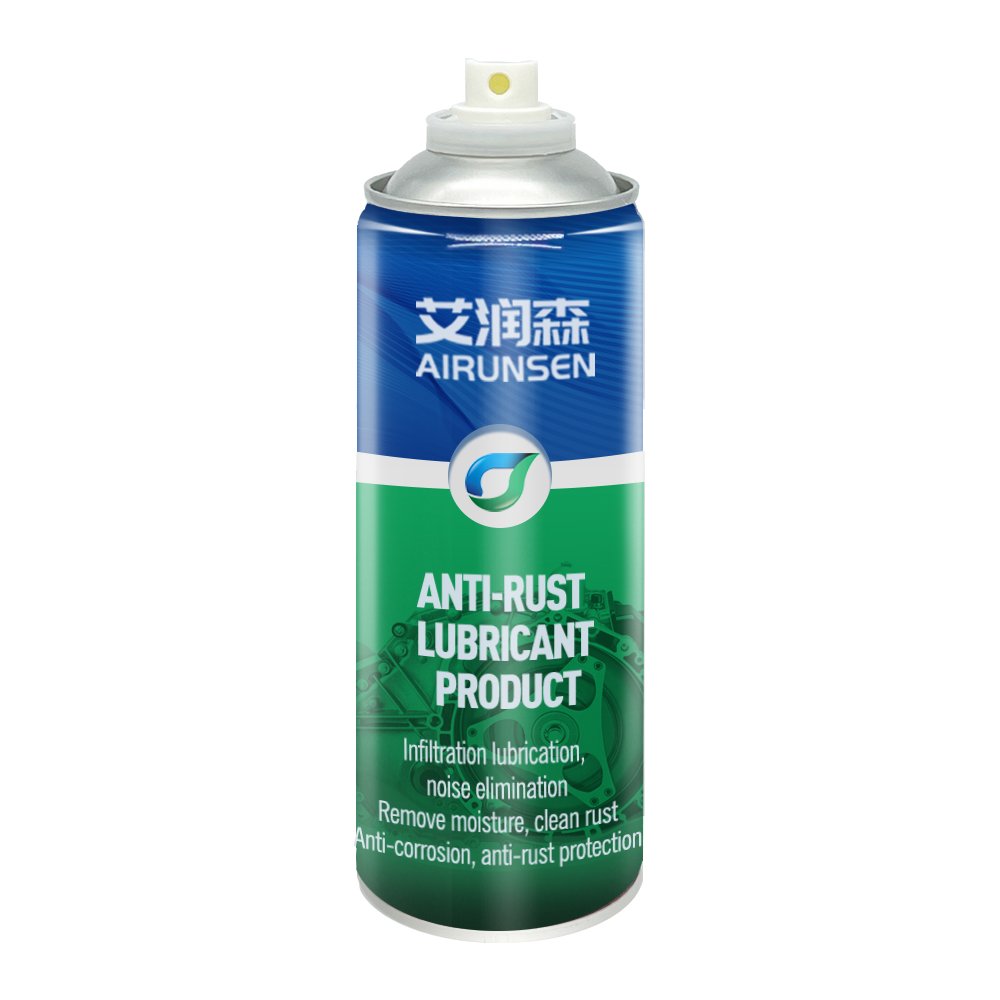1. Components
- Lubricating Agents: Universal anti – rust lubricants typically contain lubricating oils such as mineral oil or synthetic oil. Mineral oil provides a basic level of lubrication, reducing friction between metal surfaces. Synthetic oils, like polyalphaolefin (PAO), offer better performance in extreme conditions, such as high – temperature or high – pressure environments. These oils form a thin film on the metal surface, allowing moving parts to slide smoothly over each other.
- Anti – rust Agents: The anti – rust components usually include corrosion inhibitors. One common type is zinc – based corrosion inhibitors. Zinc phosphate, for example, forms a protective layer on the metal surface that prevents the contact of oxygen and moisture with the metal, thus inhibiting the rust – forming process. Another type is organic corrosion inhibitors like amines and carboxylic acids, which adsorb onto the metal surface and provide a chemical barrier against rust.
- Penetrating Agents: Many of these lubricants have penetrating agents such as kerosene or esters. These agents help the product to penetrate into tight spaces, rusted joints, and stuck mechanisms. Kerosene can break down rust and other contaminants, allowing the lubricant to reach the affected areas more easily. Esters can also help in loosening corroded parts by reducing the adhesion between the rust and the metal surface.
- Solvents: Solvents like naphtha or alcohol – based solvents are often included to thin the product and improve its spraying or application characteristics. They help the other ingredients to spread evenly and quickly evaporate, leaving behind the lubricating and anti – rust components.
2. Efficacy
- Rust Prevention: The primary function of a universal anti – rust lubricant is to prevent rust formation. It creates a protective barrier on metal surfaces, shielding them from the corrosive effects of moisture, oxygen, and other environmental factors. For example, when applied to a metal tool left outdoors, it can significantly delay the onset of rust, keeping the tool in working condition for a longer period.
- Lubrication: It provides excellent lubrication to reduce friction between moving parts. This is beneficial for machinery, door hinges, and other mechanical components. By reducing friction, it not only enables smooth operation but also helps to extend the life of the parts by minimizing wear and tear. For instance, a squeaky door hinge can be silenced and made to move more smoothly after the application of the lubricant.
- Penetration and Rust Loosening: The penetrating agents in the lubricant are effective in loosening rusted or seized parts. If a bolt is rust – bound, the lubricant can penetrate the rust layer and break it down, allowing the bolt to be more easily removed or adjusted. This property is invaluable for maintenance and repair work, especially in machinery and automotive applications.
- Moisture Displacement: It can displace moisture from metal surfaces. When water comes into contact with a treated metal surface, the lubricant pushes the water away, preventing it from causing rust or other forms of corrosion. This is useful in damp or humid environments.
3. Advantages
- Versatility: As the name suggests, universal anti – rust lubricants can be used on a wide variety of metal surfaces and mechanical components. They are suitable for use in automotive, household, industrial, and marine applications. Whether it’s a car engine, a garden tool, or a marine engine part, the same product can often provide effective protection and lubrication.
- Ease of Use: Most of these lubricants come in aerosol cans, which makes them very easy to apply. The spray nozzle allows for precise and even distribution of the product onto the target surface. This ease of use means that even non – technical users can quickly and effectively apply the lubricant to maintain their equipment.
- Cost – effectiveness: Using a universal anti – rust lubricant can be a cost – effective solution for equipment maintenance. By preventing rust and reducing wear through lubrication, it can help to avoid costly repairs and replacements of metal parts. Compared to the expense of replacing rusted or damaged components, the cost of regularly using a lubricant is relatively low.














